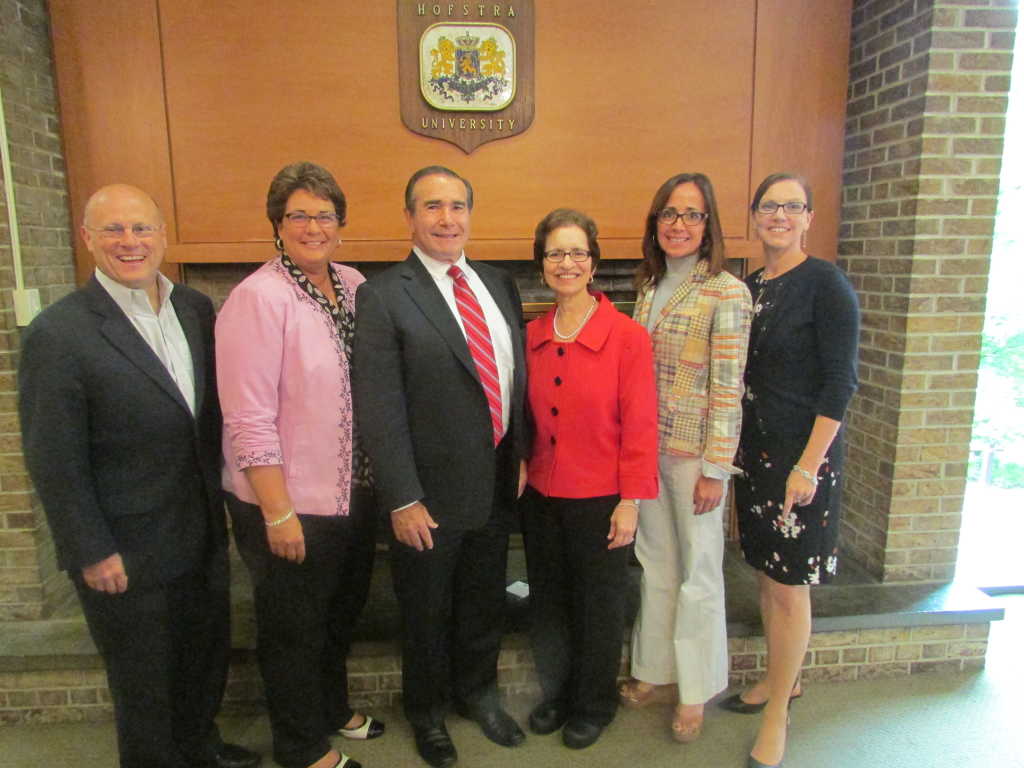New York , NY – June 9, 2015 – (RealEstateRama) — Community Development Corporation of Long Island (CDCLI) and the National Center for Suburban Studies at Hofstra University® hosted a convening today, attended by regional and national leaders, to present the latest research on the connection between safe, affordable housing and health outcomes. Entitled Home Matters for Health on Long Island, the gathering featured an overview of creative, cutting-edge efforts around the country and produced a consensus to develop strategies for closer collaborations between the health and housing sectors and to identify potential partnerships for action.
“The directors and staff of Community Development Corporation of Long Island have long observed the positive benefits of affordable, good quality, and stable housing on client health,” said Marianne Garvin, President and CEO of CDCLI, in welcoming attendees. “We have had the opportunity to bring about positive health outcomes for many clients in our weatherization and home rehabilitation programs, senior rental homes, and tenants under the Nursing Home Transition and Diversion Program. When housing is stable, weather tight, safe from tripping hazards, and green, the occupants are healthier. CDCLI believes that housing is a platform from which we can work to improve health outcomes, particularly when woven into a supportive living environment that promotes healthy lifestyles. As a signature corporate initiative for 2015 and beyond, we intend to build on these early and ongoing initiatives by establishing stronger ties with the health care industry, and designing pioneering, innovative, and impactful programs to achieve positive health outcomes for very low-income vulnerable populations.”
In addressing the attendees, Lawrence Levy, Executive Dean of Hofstra University’s National Center for Suburban Studies, said that Hofstra is pleased to host the convening as part of the University’s and NCSS’ increasing academic emphasis on the issues of health care and housing. “With suburbs seeing an explosive growth in new immigrants, some of them poor and lacking access to safe housing and effective health care, it’s essential to the success of these newcomers and the region itself that these intersecting issues are front and center in research and engagement,” Dean Levy said. “Achieving a consensus of the sort that emerged today is a major first step. The bigger challenge is to spur action – which is the next step in what we hope will be a continuing process.”
The convening was sponsored by NeighborWorks® America, United Way of Long Island, and the JPMorgan Chase Foundation. These three organizations understand the connection between housing and health outcomes, and have agreed to be partners with CDCLI and Hofstra in exploring strategies to improving community health.
The keynote address was presented by Stephanie Ettinger de Cuba, Research and Policy Director of the Children’s HealthWatch, a Boston-based network whose mission is to improve the health and development of young children by informing policies that address and alleviate economic hardship. Her address, Housing, Child Health, and Healthy Communities: A Stable, Decent, Affordable Home is Like a Vaccine, discussed how dilapidated and unaffordable housing conditions can lead to asthma, lead poisoning, poor nutrition, low birth weights, and long-term health consequences. Ms. Ettinger de Cuba presented data demonstrating connections between physical and mental health and “hidden” housing issues like being behind on rent or informal evictions. She explained that the quality, stability and affordability of housing are all important to health, and can provide multiple benefits to community health, just like a vaccine. “Safe, stable, affordable housing is a vaccine because it protects each of us individually as well as stabilizing our whole community over the short and long term. Together we can make conscious choices to consider health in all realms that touch people’s lives – especially the connections between housing and health care – and bring about a brighter future for our children and for us all.”
Ms. Ettinger de Cuba’s keynote address was followed by a panel hosted by Gwen O’Shea, President CEO of the Health and Welfare Council of Long Island. The panel consisted of five regional experts in the health and housing fields, and provided an overview of local efforts to improve health outcomes. It was followed by interactive strategy sessions with all participants. At the conclusion of the event, Paul Weech, President and CEO of NeighborWorks® America, a nationwide organization dedicated to created opportunities for people to improve their lives and strengthen their communities, outlined successful health and housing partnerships across the country, and issued a “Call to Action” for the attendees. Mr. Weech said “Deep disparities in health outcomes – from infant mortality to life expectancy – impact the communities that we serve and they drive us to action. Fortunately, local organizations across the country are showing us the way by connecting the health care system to community development work to achieve real health benefits for their residents. ”
About Hofstra University
Hofstra University is a dynamic private institution of higher education where more than 11,000 full and part-time students choose from undergraduate and graduate offerings in liberal arts and sciences, business, engineering, applied science, communication, education, health sciences and human services, honors studies, the Maurice A. Deane School of Law and the Hofstra North Shore-LIJ School of Medicine.
About the National Center for Suburban Studies at Hofstra University®
NCSS is a non-partisan research institution dedicated to promoting the study of suburbia’s problems, as well as its promise. Rooted in the laboratory of Long Island’s diverse and aging suburbs, the National Center researches a broad range of issues at local, national, and international scales. Our goal is to identify, analyze, and solve the problems of suburbia, especially in areas of sustainability, social equity, and economic development.
###




